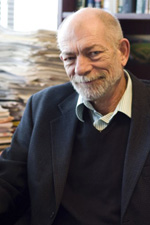 Here's a little round up of links from around the Web you may have missed this week:
Here's a little round up of links from around the Web you may have missed this week:
- Our prayers extend to the people of Norway. Lord, have mercy.
- Why voter ID laws will disenfranchise women. (HT: Kristof)
- The New York Times said it best. Today's weather "felt more like being licked by a big, swampy monster."
- Who wrote what? Rep. West vs. Jane Austen.
- These awesome folks turned Carmageddon into a dinner party.
Shakespeare said a rose by any other name would smell as sweet. Maybe, but a Stink Rose by any other name (say... garlic?) might get more play.
On July 19, Campus Crusade for Christ announced its plan to officially change its name to Cru in early 2012.
Brown v. Board of Education had not yet been fought in the Supreme Court when Bill and Vonetta Bright christened their evangelical campus-based ministry Campus Crusade for Christ in 1951. The evangelical church context was overwhelmingly white, middle class, and suburban. The nation and the church had not yet been pressed to look its racist past and present in the face. The world had not yet been rocked by the international fall of colonialism, the rise of the Civil Rights movement, the disillusionment of the Vietnam War, the burnt bras of the women's liberation movement, the fall of the Berlin Wall, or the rise of the Black middle class (more African Americans now live in the suburbs than in inner cities). In short, theirs was not the world we live in today. So, the name Campus Crusade for Christ smelled sweet. Over the past 20 years, though, it has become a Stink Rose ... warding off many who might otherwise have come near.
 With the scandal around Rupert Murdoch growing by the day, a full-fledged boycott of News Corp. has been launched on the internet, according to the Washington Post.
With the scandal around Rupert Murdoch growing by the day, a full-fledged boycott of News Corp. has been launched on the internet, according to the Washington Post.
The website Boycott Murdoch also has Facebook and Twitter pages. While the boycott has received coverage on many mainstream news outlets, it has yet to gain much traction. The Facebook page has less than 700 fans and the Twitter page is approaching only 1,000 followers. To make even a small dent in Murdoch's bottom line, the boycott will need to metastasize, and quickly.
 My office has two overflowing bookshelves, with more books stacked on top and on the windowsill. But above my desk within easy reach is a small shelf. On it I keep those books I most regularly use in thinking and writing. Here are the top 10.
My office has two overflowing bookshelves, with more books stacked on top and on the windowsill. But above my desk within easy reach is a small shelf. On it I keep those books I most regularly use in thinking and writing. Here are the top 10.
1. The Bible: What can I say about the foundational source of God's guidance in everything? I read or refer to it nearly every day. It was given to us "for teaching, for reproof, for correction, and for training in righteousness" (2 Timothy 3:16).
2. The Book of Common Prayer: I am not Anglican/Episcopalian, but there is something in the formal prayers of the traditional liturgy that resonate with my soul. On those days I really don't feel like praying or can't find the words, it's comforting to have a place to turn for inspiration.
Today is another intense day of politics at the White House. The debt default deadline is fast approaching. The stakes for the nation are high as politicians can't agree on how to resolve the ideological impasse on how to reduce the deficit before the nation defaults on its financial obligations.
Yesterday, before Congressional leaders were due at the White House for critical negotiations, I, along with 11 other national faith leaders, met with President Obama and senior White House staff for 40 minutes. We were representing the Circle of Protection, which formed in a commitment to defend the poor in the budget debates. Sitting in the Roosevelt Room of the White House, we opened in prayer, grasping hands across the table, and read scripture together. We reminded ourselves that people of faith must evaluate big decisions on issues like a budget by how they impact the most vulnerable.
[Editors' note: As part of Sojourners' campaign to end the war in Afghanistan, we will run a weekly blog about issues in Afghanistan to educate our readers about the latest news and developments related to the war, the U.S. military's strategy, and the people impacted by our decisions. Read more about our campaign at www.sojo.net/afghanistan.]
The United States government has quietly terminated a popular exchange program for high school students from Afghanistan after numerous participants fled to Canada as refugees rather than return home.
The program, the State Department's Youth and Exchange Study (YES), was established in 2002 to provide scholarships to students from countries with significant Muslim populations, and "allows participants to spend up to one academic year in the U.S. while they live with host families, attend high school and learn about American society and values." In 2007, YES Abroad was established to provide a similar experience for U.S students in selected YES countries.